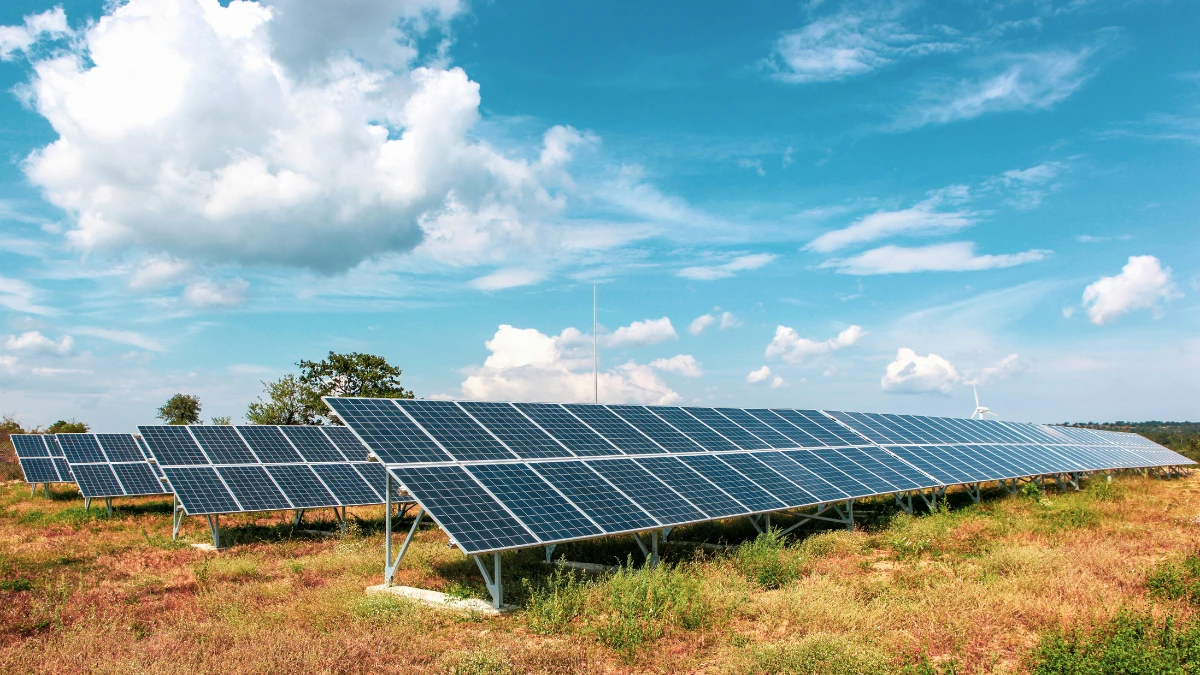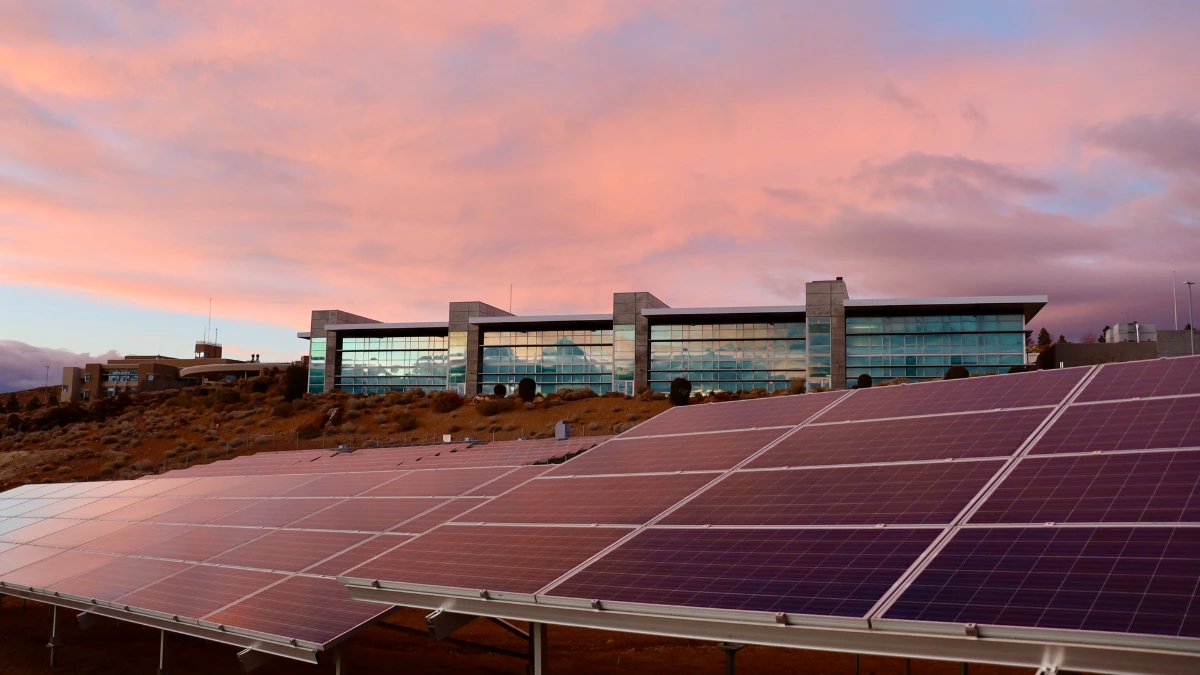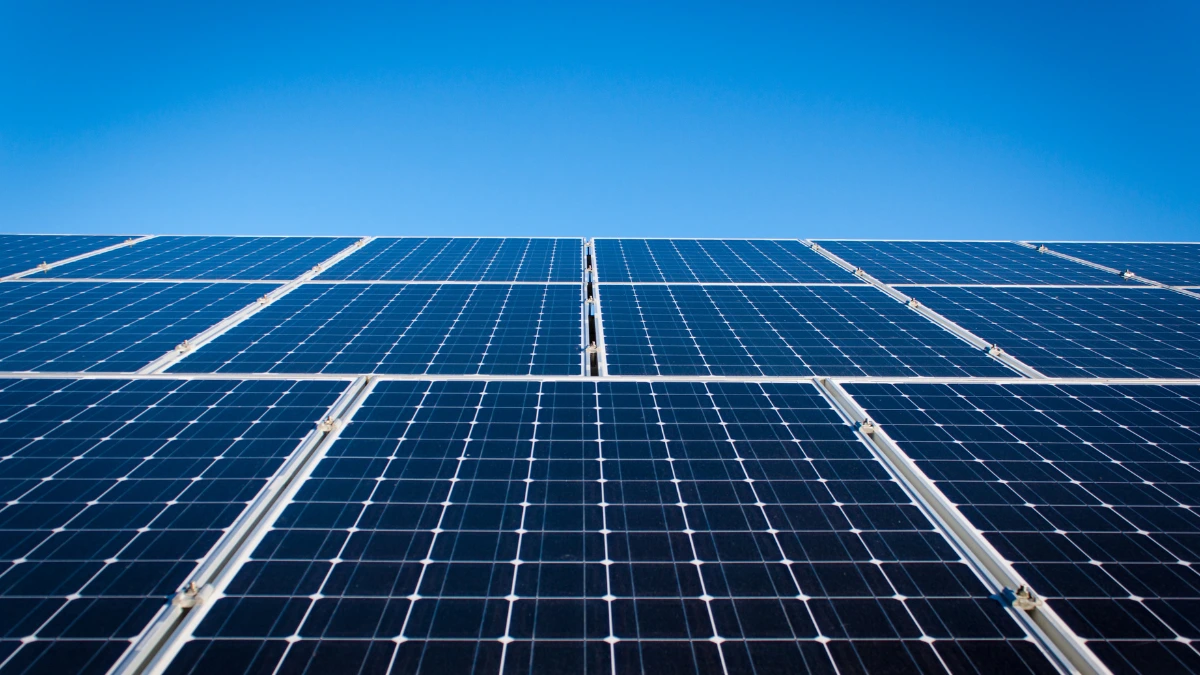Smart solar power systems come as an innovation for the increasing global warming and high awareness of the need for sustainable and efficient energy.
Smart solar power systems provide maximum energy use to increase the productivity of various sectors such as modern agriculture and plantations.
This article will inform you more about the smart solar power system from the definition, workings, benefits, and regulations of its use in Indonesia.
What is a Smart Solar Power System?

Smart solar power system is a solar panel system that is equipped with smart technology so that it can be integrated with digital technology. This device system is supported by the Internet of Things (IoT), artificial intelligence (AI), and advanced control systems via smartphones or tablets.
A smart solar power system with all its technology is designed to increase efficiency, maximize the performance of solar panels, and provide convenience in monitoring and controlling the device.
How Does it Work?
The way a solar power system works is simply by capturing sunlight, converting current, storing energy, and distributing usage. This device involves several main components in supporting its maximum work. Here are the main components that support the work of a smart solar power system:
- Photovoltaic (PV) Solar Panels: Serve to convert sunlight into electricity. Smart inverter: Functioning to convert DC from solar panels into AC for use, monitoring, and managing energy digitally.
- Energy storage system: Works to ensure continuous availability of energy.
- Sensors and IoT: Serves to monitor various parameters such as light intensity, temperature, and weather conditions for energy management system analysis and decision-making.
- Energy management platform: Cloud-based software that collects data from sensors and inverters, analyzes system performance, and provides recommendations for optimization.
The Benefits

Using a smart solar power system will provide many benefits, especially for supporting capturing sunlight and distributing usage. Here are some of the main benefits:
1. Provides consistent energy
Smart solar power systems are able to ensure consistent energy availability and large electricity generation. This is particularly useful for operations that require continuous energy, such as irrigation and lighting.
2. Environmentally friendly
Solar energy is energy that does not produce carbon emissions. By using a smart solar power lighting system, you are helping and contributing to reducing your carbon footprint.
3. Increase productivity
With a smart solar power lighting system, it supports automation and monitoring efficiency. This not only increases productivity in the production that uses this system, but also allows an individual to do other activities while maintaining maximum production.
4. Real-time monitoring and management
With integration with IoT and smartphones, smart solar power systems can be monitored and managed in real-time. That way any problems can be identified and the right solutions found to ensure operations continue to run smoothly.
5. Energy cost savings
By using solar power, the availability of energy is abundant and free, thus reducing operational costs. The device’s intelligent system also helps ensure that energy is used efficiently, avoiding wasteful use.
The Challenges of Implementation
Although it has many benefits, using a smart solar power system will encounter some challenges in implementing it. Here are the challenges:
- Infrastructure limitations: There is insufficient infrastructure in some areas to support the implementation of the technology.
- High initial cost: Requires high initial investment for installation and maintenance.
- Technical skills: Requires technical skills to operate and maintain the system.
- Weather constraints: Areas with limited sunlight do not favor the system.
- Cybersecurity: Internet-connected systems are vulnerable to cyber-attacks.
Regulation in Indonesia

The smart solar power system uses technologies such as Bluetooth, Zigbee, or WiFi that operate within a specific frequency spectrum. In Indonesia, any Bluetooth or WiFi-based wireless device is required to have a DJID (Directorate General of Digital Infrastructure) under the Ministry of Communication and Digital (KOMDIGI).
Smart solar power system regulation is based on KEPMEN No. 260 Tahun 2024 for Bluetooth and Zigbee, and KEPMEN No. 12 Tahun 2025 for WiFi, which requires all radio frequency-based devices to meet specific technical standards before being sold in the country.
The DJID certification ensures that the product meets government safety and quality regulations and does not interfere with other communication devices. The certification process involves technical testing, such as frequency adjustments, safety checks, and compatibility with the surrounding environment.
Once the tests are completed, products that pass are listed in a Test Result Report, which confirms that the product is safe and ready for sale in Indonesia. This report reassures customers that the product meets technical standards and is secure.
For companies wanting to sell a smart solar power system in Indonesia, Type Approval Certification Services for ICT Products are available to assist with this process. This service includes preparing technical and legal documents, conducting required testing, ensuring compliance with regulations, helping companies streamline the certification process, and giving consumers confidence in certified products. [UN].

